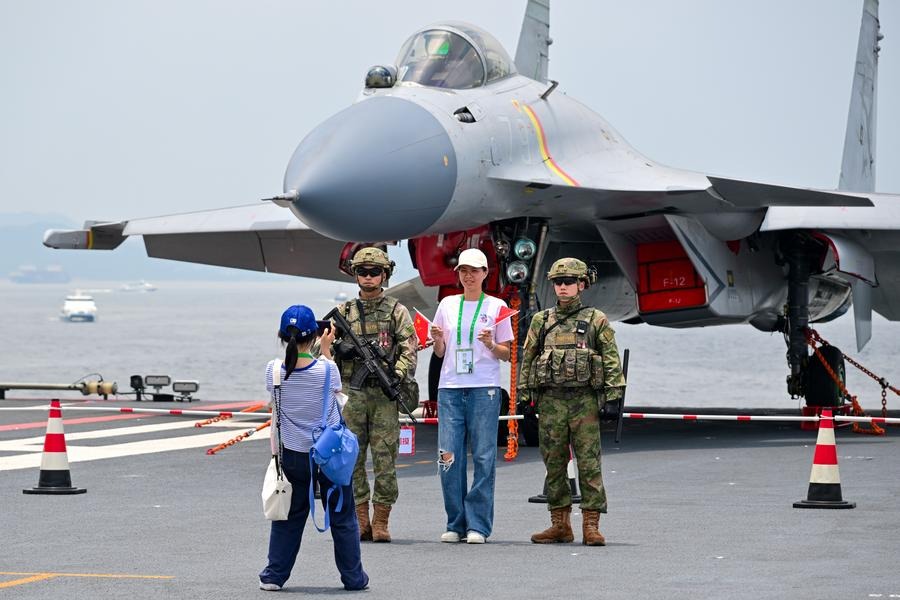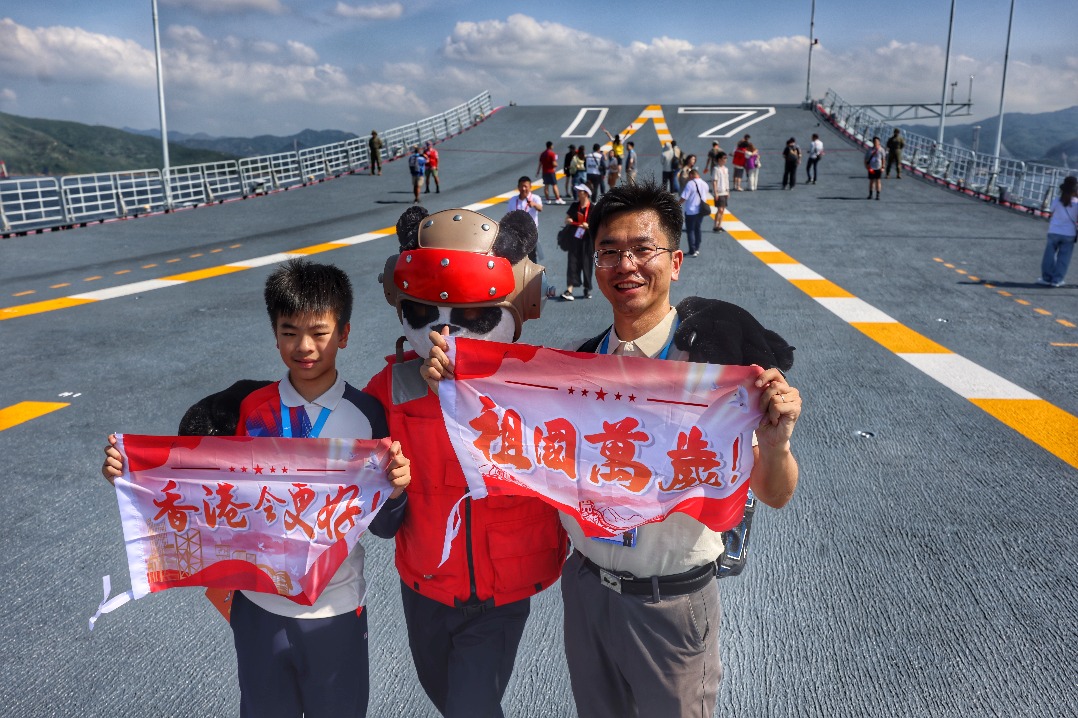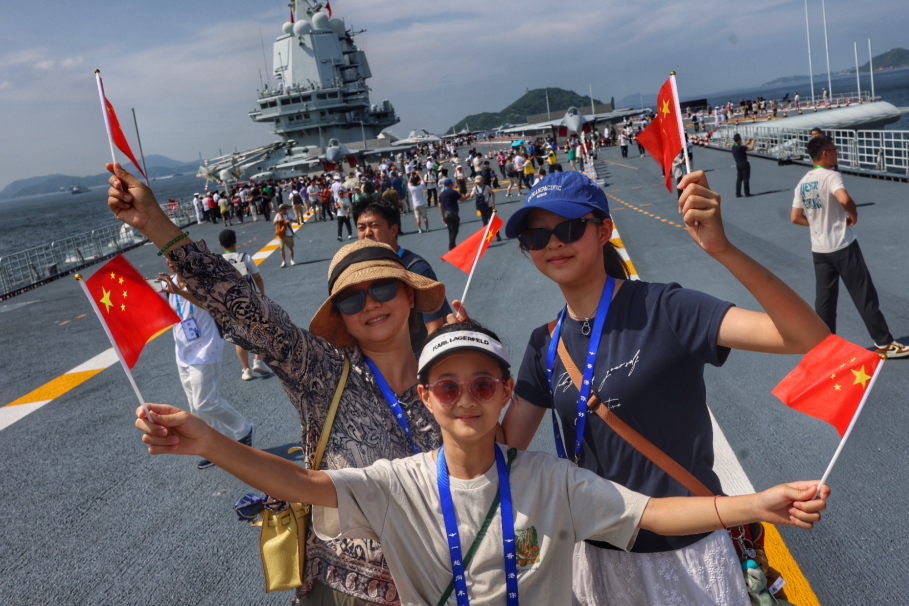Lai Ching-te's restrictive policies send chills to cross-Strait exchanges

TAIPEI/XIAMEN -- People engaging in exchanges across the Taiwan Strait are feeling a chilling effect when Taiwan authorities led by Lai Ching-te have doubled down on restrictive policies toward the mainland.
Portraying the mainland as a "hostile external force," Lai outlined 17 strategies to counter so-called threats facing the island, including a number of restrictive policies on mutual visits by Taiwan and mainland residents as well as on cultural, academic and religious exchanges.
One policy is to ensure that local residents register their personal information with the authorities before traveling to the mainland.
"Some artists working at public educational institutions would hesitate to attend events on the mainland for fear of possible career setbacks," said Sun Di, a long-time organizer of cross-Strait art events.
Since the outbreak of the COVID-19 pandemic, Sun has encountered either rejections or delays when applying to the Taiwan authorities for hosting cross-Strait events in Taiwan or obtaining travel permits for mainland artists to the island.
"The latest policy obviously signals that my work will become more difficult in the future," he said. "This is what the Taiwan authorities want -- to sever the shared cultural roots between the two sides of the Strait."
Another heavily-hit sector is tourism, once a major beneficiary of mainland visitors. At a travel fair that opened in Taipei on Friday, local travel operators expressed concerns over the gloomy future of cross-Strait tourism.
"Our clients have called to inquire about the new policy about mainland tours. Some of them are nervous. It is very likely to affect our business since our most popular products are tours to the mainland," said an executive from a Kinmen-based travel agency who requested anonymity.
He lamented that years ago, mainland tourists swarmed into Kinmen, whereas now only visitors from Fujian province remain, and many travel agency employees and tourist coach drivers had to turn to other jobs.
This decline is not due to a lack of interest on the mainland's part. The mainland announced in January that it planned to resume group tour services for Fujian and Shanghai residents to Taiwan.
"We had been so happy to hear that Shanghai tourists could come, but the Taiwan authorities' response is very disappointing," the executive said.
Meanwhile, Taiwan still forbids residents from traveling to the mainland on group tours, against which the tourism industry has petitioned the authorities for a long time.
C&D Tour, based in Xiamen of Fujian, is one of the first mainland travel agencies qualified to organize group tours to Taiwan in 2008.
"Over the years, people on the two sides of the Strait have known each other better through tourism," said Zhang Zhang, general manager of C&D Tour. "Many of our partners on the island are eager to resume cooperation as soon as possible. I can clearly feel the strong expectation from both industry professionals and the public."
However, Lai's restrictive strategies have dented their hopes.
"The scrutiny on mainland individuals coming to Taiwan for exchanges is expected to become even stricter. Cross-Strait civil exchanges will be impacted and may not proceed normally," said Ringo Lee, chairman of the High Quality of Travel Association. "The relaxation of the ban on group tours to the mainland and the opening of Taiwan to mainland tourists may remain a distant prospect."
Beyond tourism and cultural ties, restrictive policies have significant economic implications as Taiwan remains deeply intertwined with the mainland economically, with the mainland and Hong Kong contributing to roughly 90 percent of its total trade surplus in 2024.
The Democratic Progressive Party (DPP)'s new strategies have inevitably raised concerns among businesses, particularly among Taiwan entrepreneurs doing business on the mainland, said Lai Cheng-yi, honorable chairman of the General Chamber of Commerce in Taiwan.
"The two sides of the Strait have long been inseparable in economic and trade exchanges. Maintaining stable flows of people, goods and capital between the two sides is beneficial to Taiwan's overall trade and economic development," he added.
Wu Chia-ying, vice-president of the Association of Taiwan Investment Enterprises on the Mainland, told Xinhua that the 17 strategies proposed by Lai Ching-te deliberately stir up division and attempt to create a rift between the two sides of the Strait.
In contrast to Fujian, which has been rolling out batches of preferential policies for Taiwan residents covering their employment, entrepreneurship and daily life, the DPP authorities have set up administrative barriers and used publicity campaigns and information blockades to deter young people and business people from exploring their careers in the mainland, he said.
While Fujian is working hard to enhance industrial cooperation, facilitate technological advancements, and attract Taiwan businesses, making itself a cross-Strait integrated development pilot, the DPP authorities are suppressing collaboration between Taiwan and mainland enterprises and obstructing Taiwan firms from participating in the mainland's high-tech industry, according to Wu.
"Such measures will not only weaken the competitiveness of Taiwan enterprises but also pose a long-term threat to the island's overall economy," Wu said.
"I wonder whether Lai's strategies will have a reverse effect. The harder he bars people from having contact with the mainland, the more people would like to learn about the mainland," said Weng Hsiao-ling, a legislator of the Chinese Kuomintang in Taiwan.
- China renews yellow alert for Typhoon Danas
- Chinese courts report progress in supporting environmental governance
- Chinese vice-premier underlines sci-tech innovation in agriculture, healthcare
- China activates emergency response as Typhoon Danas approaches
- Naval fleet led by Shandong aircraft carrier visit wins praise in Hong Kong
- Four missing after SW China mudslide





































